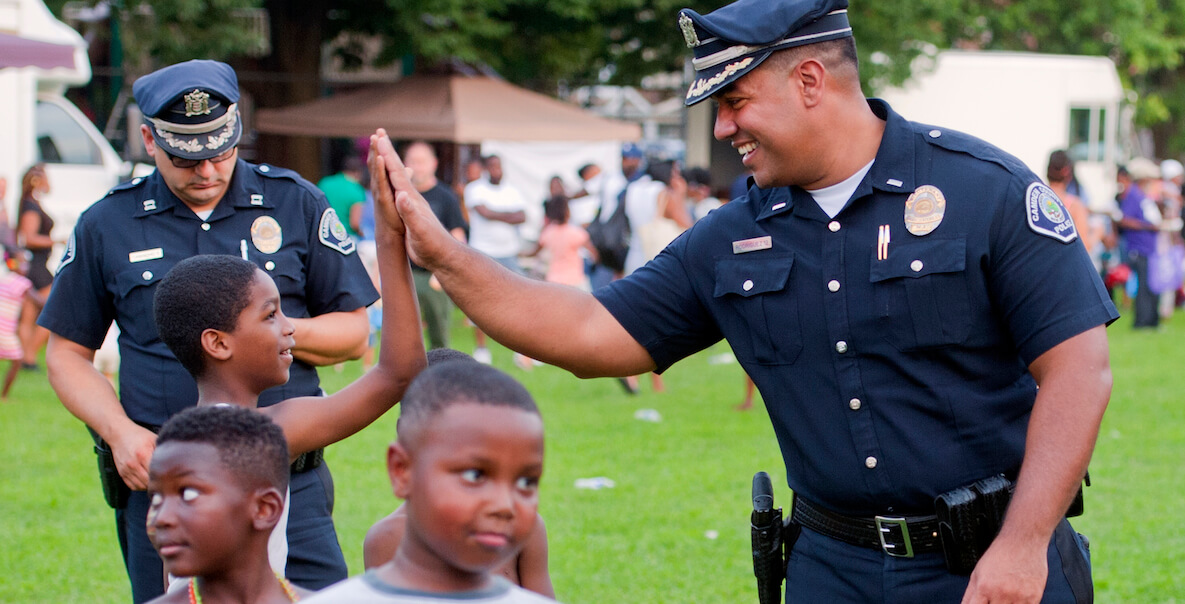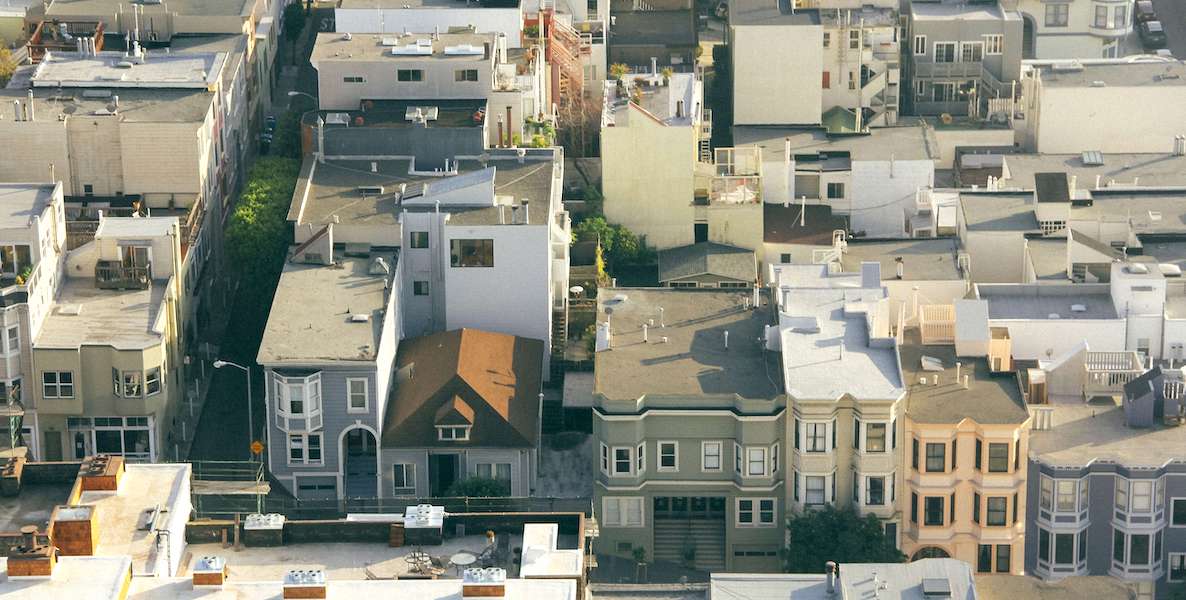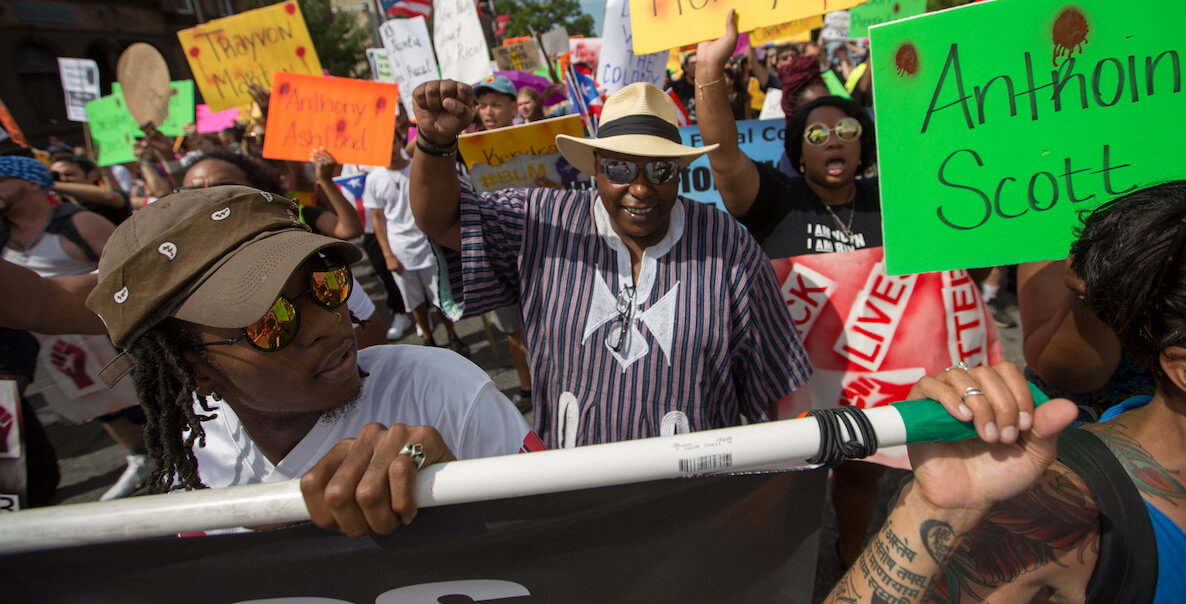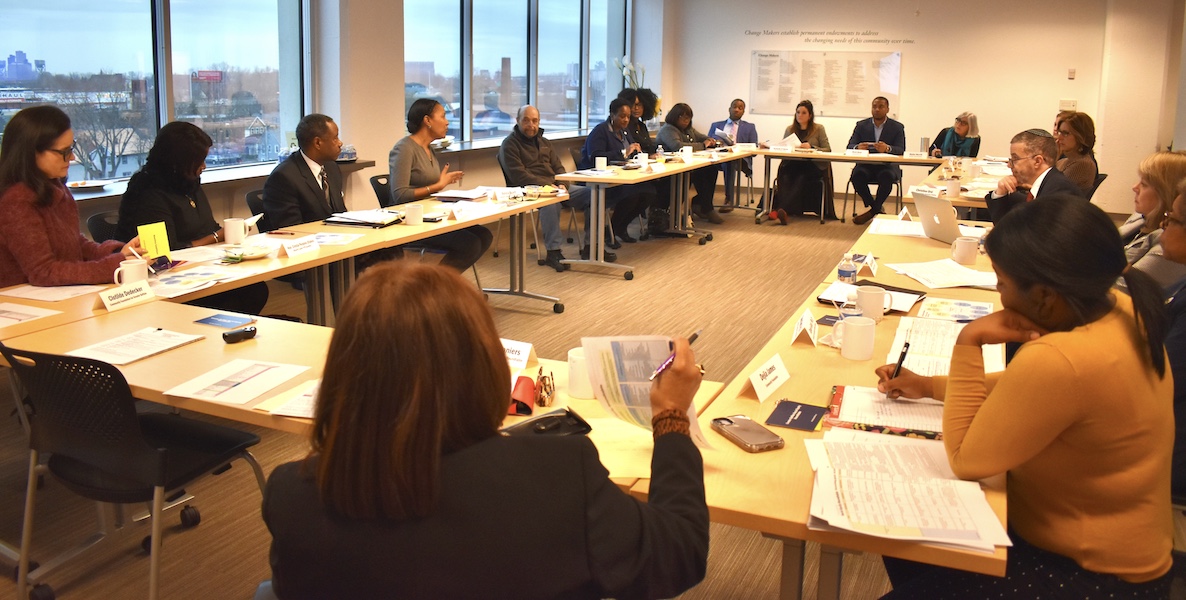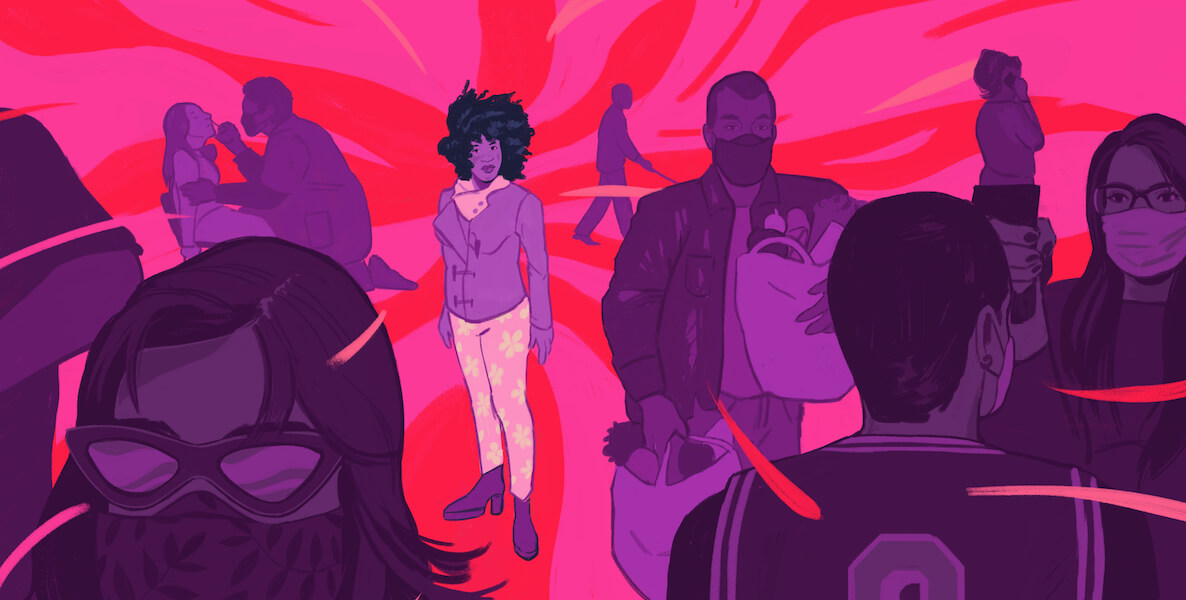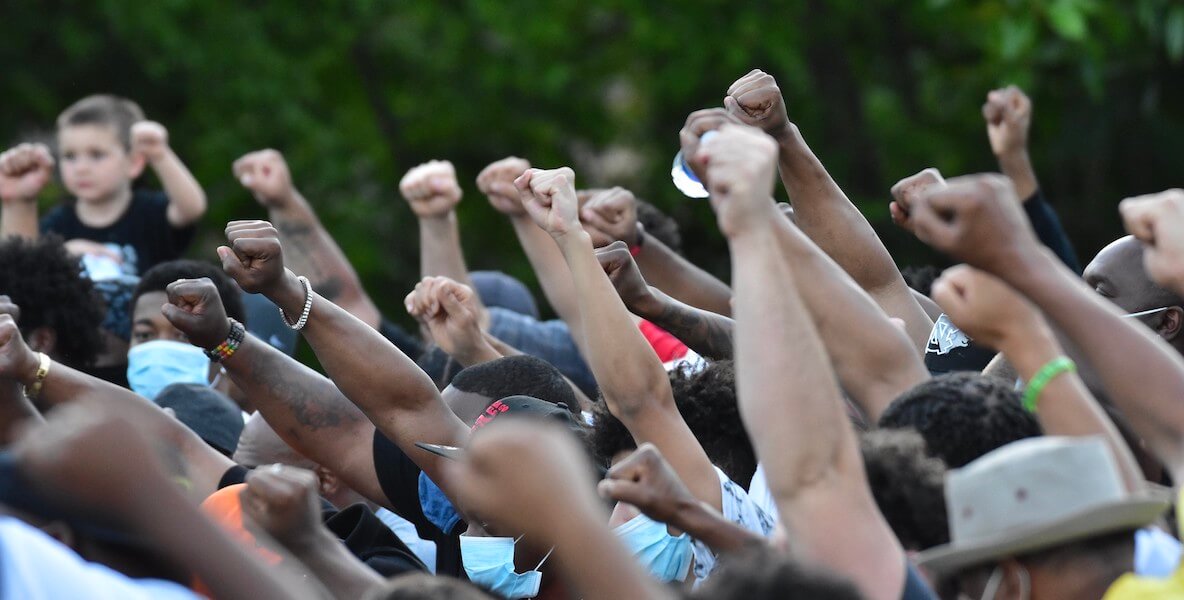To a nation and a founding city that have witnessed centuries of violence against Black bodies, George Floyd’s killing on May 25, 2020 at the hands of a police officer was tragic, but not exceptional. We Americans — all of us — had seen this happen before. What can we do to enact police reform?
What was different about Floyd’s death was what happened afterwards: More Americans woke up to racism in policing and in the nation. More Americans spoke out, protested, voted. More institutions and legislators vowed to make change — and some actually did. The call for racial justice and equitable policing grew.
But in the years since Floyd’s death, police have killed an average of 325 Black Americans annually, according to Mapping Police Violence. Cities remain mired in gun violence, with Black men the most frequent victims. People of color continue to fight structural inequities, even as the federal government rolls back protections for people of color.
Here, some things you can do to make sure progress continues, and, one day, succeeds.
- DEMAND CHANGES TO POLICING
- WATCH THE FOP (POLICE LABOR UNION)
- SUPPORT CRIMINAL JUSTICE REFORM IN PHILADELPHIA
- BE A WITNESS
- SUPPORT LOCAL ADVOCACY
- HELP BAIL OUT PHILADELPHIANS
- SUPPORT BLACK-OWNED BUSINESSES
- HELP BRIDGE RACE RELATIONS
- DEMAND CORPORATE TRANSPARENCY
- INVEST WISELY
- CELEBRATE PROGRESS
- LEARN BLACK HISTORY
- READ ON
- PROTECT THE VOTE
- VOTE
DEMAND CHANGES TO POLICING
Better policing can and does exist: In training on how to deal with people suffering from mental health issues, and how to behave like guardians, not warriors; in rethinking the notion of what public safety is, so it is of and for the community, not against it; in keeping murderous cops out of the department; in peer intervention policies that break through the blue wall; and in upending the police unions that historically protect — and even celebrate — violent cops on the force.
There are local examples to follow: Both Camden and Newark, NJ and Delaware County.
Austin, Texas (which, in many ways, is remarkably similar to Philly) created a holistic Task Force on Institutional Racism and Systemic Inequalities. Dallas, Texas built hybrid teams, consisting of a police officer, a paramedic and a social worker, to de-escalate and provide help in neighborhoods, jails and ERs. Prince William County in Virginia instituted a similar program. Police in Los Angeles, California enacted new, harm-reduction-minded protocols for responding to nonviolent crises.
Learn about these efforts and more, including legislative acts, through Campaign Zero, a national nonprofit pushing for policing policy reforms.
WATCH THE FOP
In September 2021, the City and the Fraternal Order of Police (FOP / the police union) agreed to a three-year contract that included a first-ever local (or national) inclusion of public testimony. Also for the first time, the City shared the final document with the public, which promised to add at least one civilian to the Police Board of Inquiry (previously consisting solely of a captain, lieutenant and a rank-and-file officer) proceedings, contract violation hearings for members of the PPD. The new contract also provided an officer’s membership in a hate group, and threats, harassment and intimidation of the public now would result in discipline.
That contract lasted through June 2024, and was later extended — with more raises and bonuses — through July 2025.
That same year, City Council voted to create the watchdog group the Citizens Police Oversight Commission (CPOC), to, in the words of its executive director Tonya McClary, “foster accountability, reduce harm, and create a safer Philadelphia by bridging the gap between the community and law enforcement.” The CPOC got off the ground in 2022 — but has yet to conduct an investigation, citing pushback and lack of cooperation from the FOP.
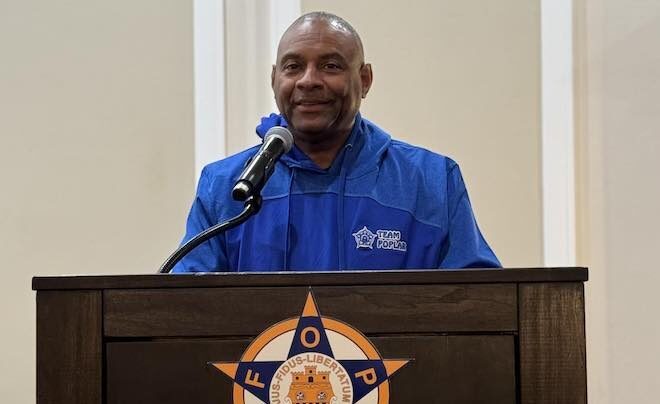
For its new contract, the FOP has proposed rolling back measures taken in 2021, and even pre-2021 measures toward transparency and accountability. The labor union wants to end the PPD’s long-held policy of releasing names of officers involved in shootings. They’d like to restrict outside access to officers’ employment records. The FOP also wants to officially prevent the CPOC from investigating police misconduct — which is a primary role of and reason for the Commission’s existence.
If you want the PPD to change, or to be accountable for their actions on and off-duty, let the Mayor and City Councilmembers know you are still paying attention.
REFORM OUR CRIMINAL JUSTICE SYSTEM
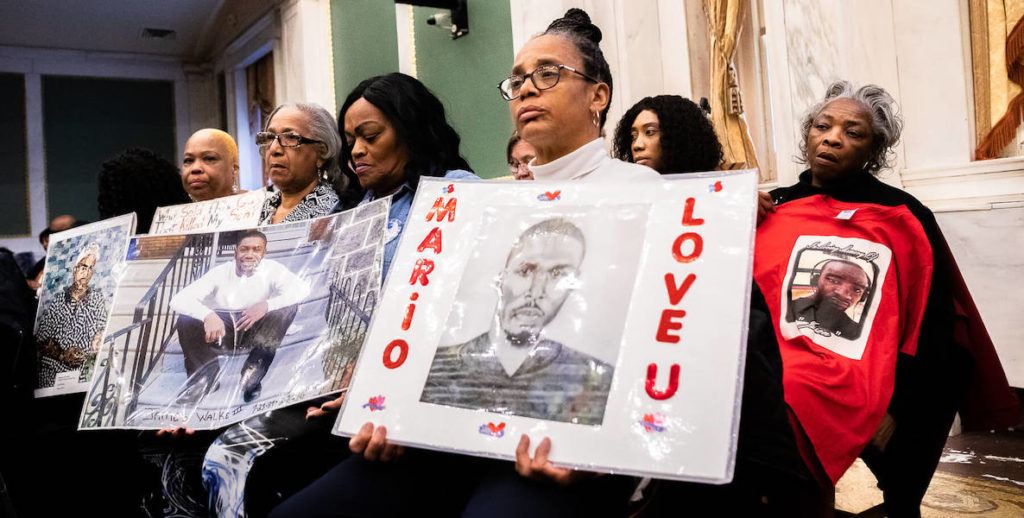
Amistad Law Project: Black feminists established this public interest law firm in 2014 to work to end mass incarceration. They’ve since won second chances for people with long sentences, worked to increase commutations for people serving life without parole, and led a campaign to build Philadelphia’s first non-police mental health crisis response. They’re the sister movement to …
Amistad Power Movement: This progressive org does the on-the-streets work for the Amistad Law Project through restorative justice initiatives, gun violence interruption, support for incarcerated people and their families and promotion of progressive lawmakers.
DecarceratePA: This grassroots campaign is working to stop PA from building prisons and to reduce the prison population. They support ending life without parole, Philadelphia’s public defenders union, and the Montgomery County-based Reuniting Family Bail Fund to end cash bail.
Free The Ballot: These activists support people in jail and incarcerated and their families by encouraging voting.
Pennsylvania Prison Society: Since 1787, this organization has worked to “promote the health, safety and dignity of people behind bars.” These days, that means assisting incarcerated people and their families by helping them access prisons, stay in touch, and staff a helpline. Their mission is also to shine a light “into the closed world of prisons, exposing and addressing the most serious issues.” Essentially, the Society is also the only organization in PA with the legal authority to visit any prison or jail.
Youth Art and Self-Empowerment Project: Four young people who had been prosecuted and incarcerated as adults founded this youth-led org in 2006. Their focus: “building youth leadership in the movement to end mass incarceration.” Their efforts include art and poetry workshops and a justice hub for youth held in adult prison, provide direct reentry support, and work with the Community Bail Fund to help young people pay to be released on bail.
Youth Sentencing and Reentry Project: A pair of young attorneys founded this legal aid organization after working together at Philadelphia’s Juvenile Law Center. They’ve since moved on, but the project and its goal remain: partner “with court-involved youth and formerly life-sentenced children, their families, and lawyers to get cases transferred to the juvenile system or resentenced, and make crucial connections to community resources providing education, healthcare, housing, and employment. They also recruit, train, and supervise students and other volunteers to assist in this work.”
BE A WITNESS
Without 17-year-old Darnella Frazier’s 10-minute cell phone video of Chauvin killing Floyd, which set off an international racial justice movement, the officer might never have faced a trial or been convicted.
Today, cell phone-wielding reporters seem to be everywhere, documenting run-of-the-mill rudeness and everyday misunderstandings — but also serving as essential witnesses to all manner of injustice. Until police brutality is a thing of the past, we need people like Frazier to record police interactions.
Find out how to do that safely and ethically with this checklist from Witness, a nonprofit that trains citizens to use technology to protect human rights.
SUPPORT LOCAL ADVOCACY GROUPS RUN BY PEOPLE OF COLOR
These include the:
ACLU of Pennsylvania: The American Civil Liberties Union is “a nonprofit, nonpartisan organization dedicated to defending and protecting our individual rights and personal freedoms.” Here in Philadelphia and PA, that means fighting to fund public defenders, end illegal stop-and-frisk, and uphold voting rights.
Black Lives Matter Philly: The local chapter of the BLM Global Network that began with a hashtag works to “build local Black power and a healing, joyful, liberatory movement through grassroots organizing, political education, youth development, and coalition building.”
Frontline Dads: The North Philly org offers myriad opportunities for at-risk youth, and promotes voting. In 2024, they opened a Teen Safe Space at Blues Babe Foundation at 2233 N. Broad Street.
Man Up PHL: Columnist, commentator and WURD morning show host Solomon Jones is behind this mentorship org, which works in schools with young men from age 13 “to steer them away from gun violence” and holds 3-week workshops with adults to provide job preparedness and opportunities.
HELP BAIL PEOPLE OUT OF JAIL
A lack of cash flow all too commonly keeps people, including innocent people, locked up. The result: Lost jobs, homes, even children — before being convicted of a crime.
Donate to either Philadelphia Community Bail Fund or Philadelphia Bail Fund, which help with the expenses for people who have been granted bail by a judge but can’t afford to pay it.
SUPPORT BLACK-OWNED BUSINESSES
Small businesses owned by people of color have been the most left out of government loan programs — and the failure of a whole swath of the economy threatens to wreak havoc on already poor communities in Philadelphia. Patronize Black businesses that also give back to their communities; Black-owned restaurants; food delivery service Black and Mobile.
If you’re a business owner, join the Chamber of Commerce’s Diverse Procurement Collaborative, an effort to diversify the local supply chain with more Black and Brown businesses.
SUPPORT PHILADELPHIANS WORKING TO BRIDGE RACE RELATIONS
Like the interfaith, multi-racial movement POWER (Philadelphians Organized to Witness, Empower & Rebuild), an interfaith, interracial group working to lift up the lives of poor communities of color, or Movement Alliance Project, which “collaborates with organizations and alliances to develop strategy, collectivize the administrative capacity emerging projects need, and convene groups to deepen the interconnection and solidarity within and across sectors of organizing.”
DEMAND CORPORATE TRANSPARENCY
The racial justice protests of 2020 spurred companies large and small to promise more diversity in their workforce, at all levels. But how many are willing to share the data to hold themselves publicly accountable for fulfilling that promise?
Just Capital’s Corporate Racial Equity Tracker has compiled the data for the 100 largest companies in America, including a look at which ones are open about their hiring and promotion practices. It also keeps track of anti-discrimination policies, pay equity, education and training programs, response to mass incarceration and community investments.
Or are you yourself a shareholder? You have the power to insist the companies you invest in do right by the community. That’s what happened at DuPont in 2020, when work by shareholder advocacy group As You Sow successfully pushed for an investor vote to demand transparency in the Wilmington company’s diversity and inclusion efforts. The resolution pushing the company to release data passed by 84 percent over the objections of management.
INVEST WISELY
Say you’re pro-criminal justice reform, and would never invest your money in private prison companies. How can you be sure your 401(k) or other retirement investments are aligned with your values? As You Sow can help with that, too, with a tool that issues a letter grade for how mutual funds and other investment platforms rate on social issues like criminal justice, race and the environment.
CELEBRATE PROGRESS
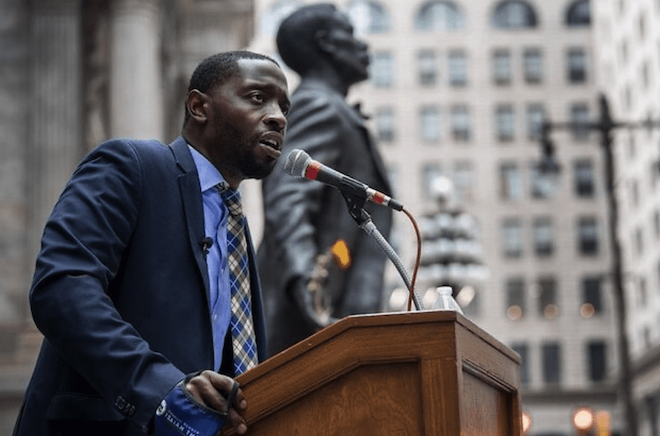
I
According to the City, by the end of 2023, nearly 4,000 PPD officers (about two-thirds of the force) had received 40 hours of Crisis Intervention Team (CIT) training. As of 2021 (the last time this number was available) 2,741 PPD personnel had trained in implicit bias, and the force had instituted monthly half-day trainings for sworn and non-sworn members. The PPD also committed to Active Bystandership for Law Enforcement (ABLE), a peer intervention program used in other cities (New Orleans, New York, Baltimore, Dallas, Boston) that trains officers to interrupt and stop acts of officer misconduct.
According to a 2020 ACLU of PA report, nearly half of all police stops in Philly were for low-level offenses — and these stops disproportionately targeted Black people, who make up 43 percent of the city population but 70 percent of the police stops. The program has now expanded to include five more districts.
In March 2022, the City enacted Councilmember Isaiah Thomas’ Driving Equality law reducing penalties for stops based on minor motor infractions such as a broken taillight, past due emission and inspection stickers, minor bumper damage, items hanging from the rear view mirror — which disproportionately target Black Philadelphians. Motorists who commit those low-level offenses now receive tickets. In 2022 the FOP filed a lawsuit against a new city law designed to reduce traffic stops for certain vehicle violations. In 2023, the Court of Common Pleas overruled their argument. The law remains in effect.
STUDY BLACK HISTORY
It’s been a minute since anyone pretended Black history should be relegated to a single month. Luckily, Philly is full of places to learn more. Here are some:
- It’s been a minute since anyone pretended Black history should be relegated to a single month. Luckily, Philly is full of places to learn more. Here are some:
- African American Museum in Philadelphia at 701 Arch Street in Center City
- Charles Blockson Collection at Temple University Library
- The Colored Girls Museum at 4613 Newhall Street in Germantown
- Lest We Forget Museum of Slavery at 5501 Germantown Avenue in Germantown
- Mother Bethel A.M.E. Church at 419 S. 6th Street in Society Hill
- National Marian Anderson Museum at 762 S. Martin Street in Graduate Hospital (You can also help fund a public statue of Marian Anderson (select “Marian Anderson Memorial Fund”) Philly’s first public sculpture depicting an African American woman from history.)
- Octavius V. Catto Memorial at Philadelphia City Hall
- Paul Robeson House & Museum at 4951 Walnut Street in West Philly
READ ON
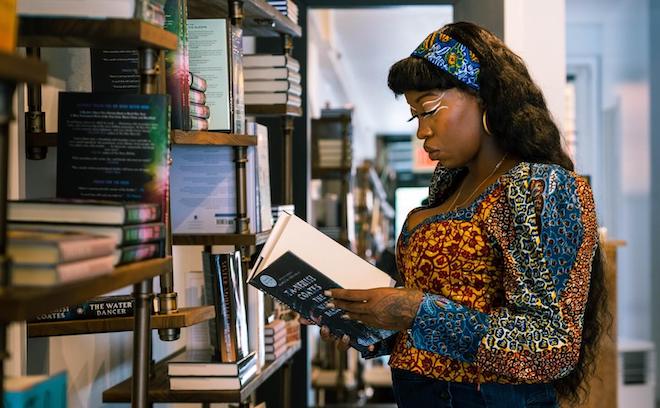
Philadelphia has a rich legacy of Black-owned bookshops, like Hakim’s in West Philly (the oldest of the bunch), and Black and Nobel on South Street, plus relative newer comers Uncle Bobbie’s in Germantown (owned by author, academic and commentator Marc Lamont Hill) and Jeannine Cook’s Harriett’s in Fishtown. These spots are both havens and resources.
Highly recommended reading: How We Stay Free, an anthology of writing about Black life and uprising in Philadelphia, commissioned by the West Philadelphia Cultural Alliance and Paul Robeson House & Museum.
PROTECT THE VOTE
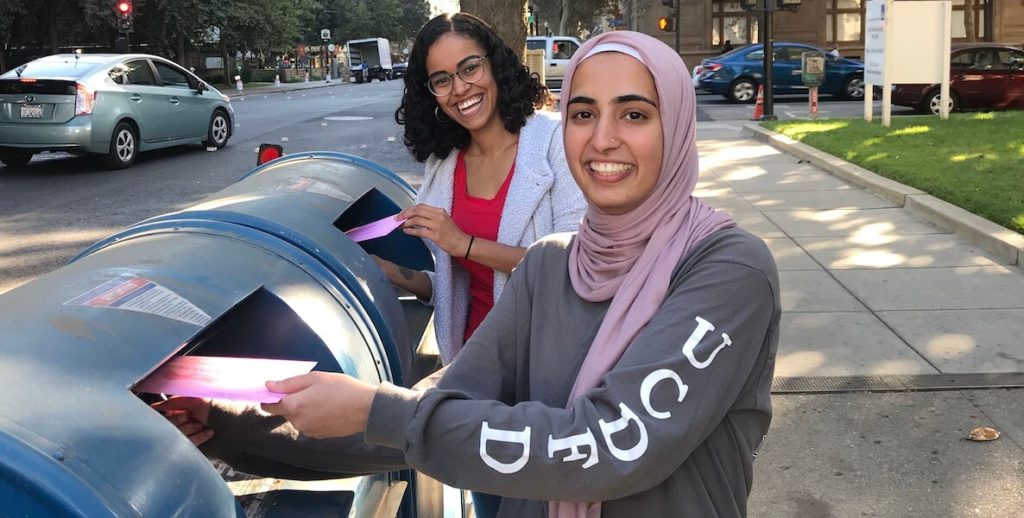
Voting rights might be essential to making a democracy work, but they’re not guaranteed. Philadelphia’s City Commissioners’ Office runs our elections — and has earned a reputation for efficiency, inclusion and transparency. If you or your neighbors have any problems voting by mail or in-person, reach out to them, and expect a swift, thorough and thoughtful response. (Their voter registration line is (215) 686-1591.)
Nonetheless, don’t expect the past few years’ series of voting challenges to continue to put up obstacles to the franchise to American voters of color.
Stay up on voting rights issues with Voting Rights Lab’s Vote Tracker and the Brennan Center’s Voting Rights Litigation Tracker.
AND, OF COURSE, VOTE
Make sure you are prepared and know how to vote in PA in the next election. Then choose candidates who are sincere about change, who have the political skills to get stuff done, and who are brave enough to face down those who benefit from the status quo. As Larry Sabato at UVA’s Center for Politics puts it: “Every election is determined by the people who show up.”
Let that be you.
![]()
PHILADELPHIANS DOING THEIR PART TO FURTHER RACIAL JUSTICE
Header Photo: Anthony Crider / Flickr


